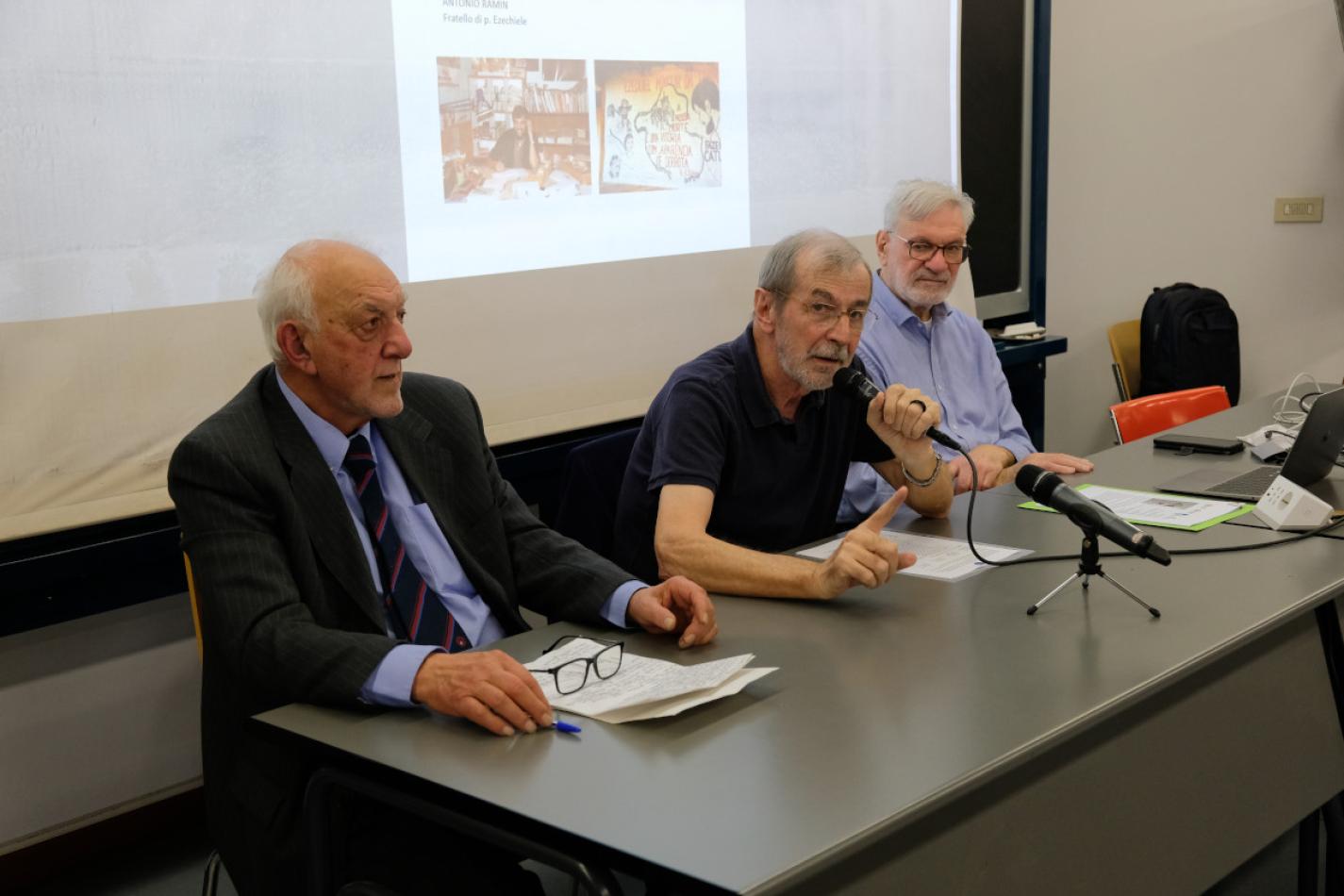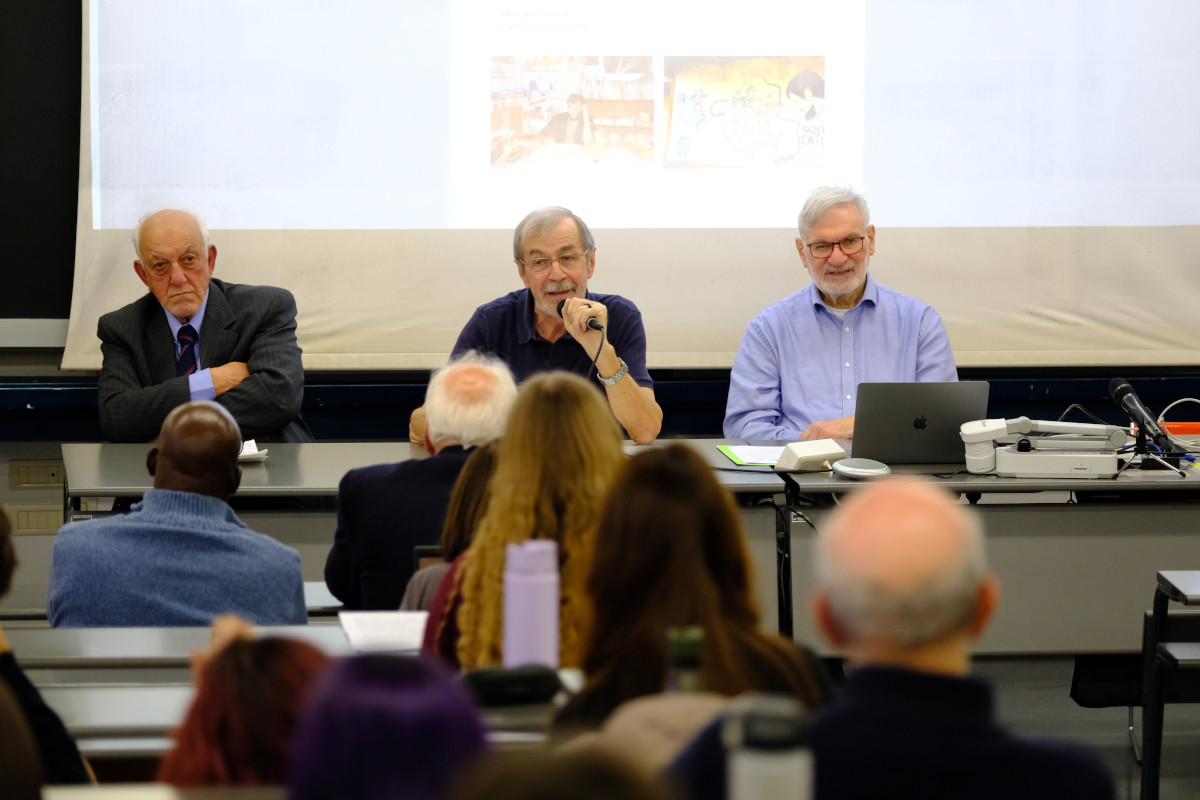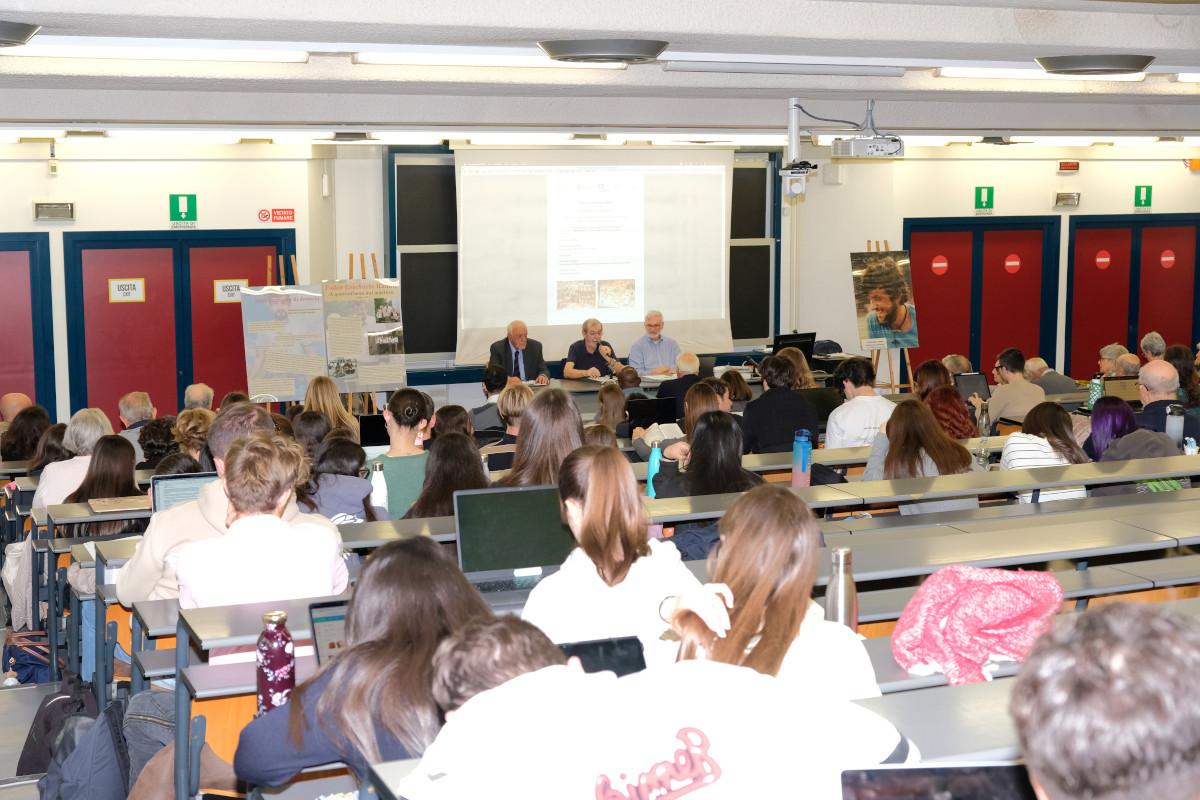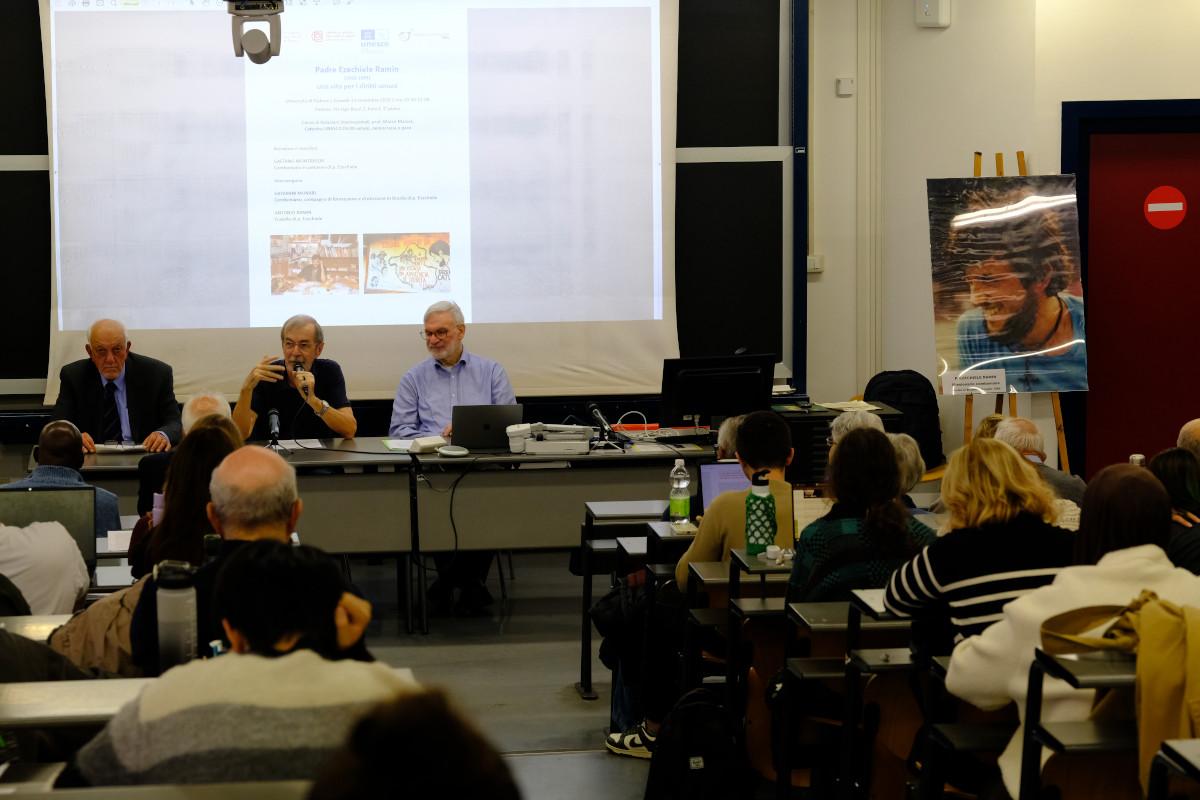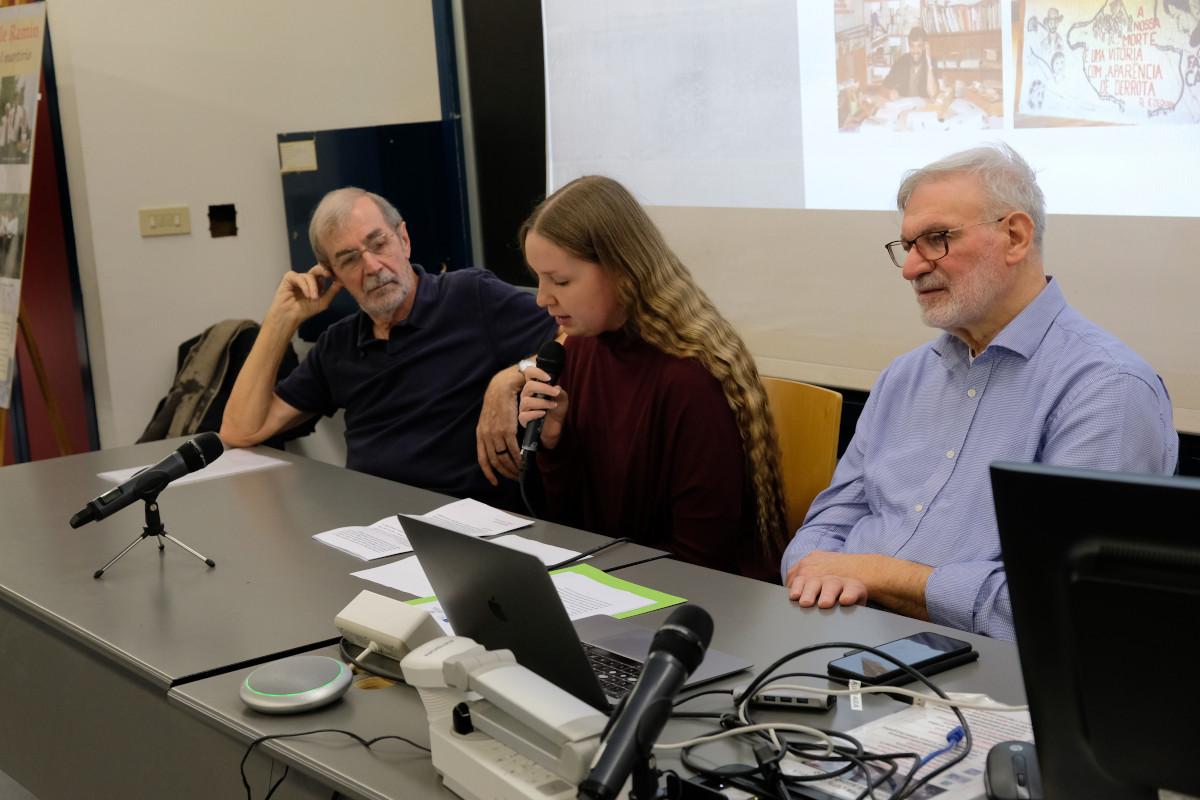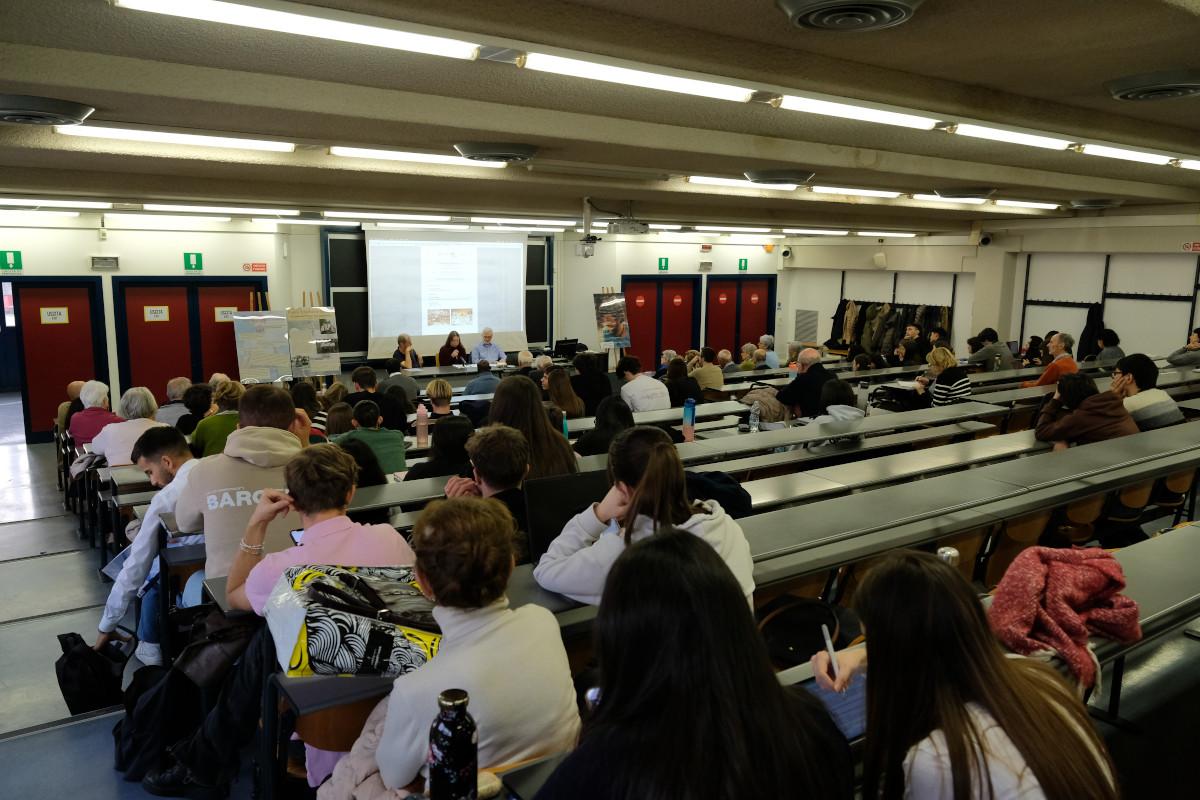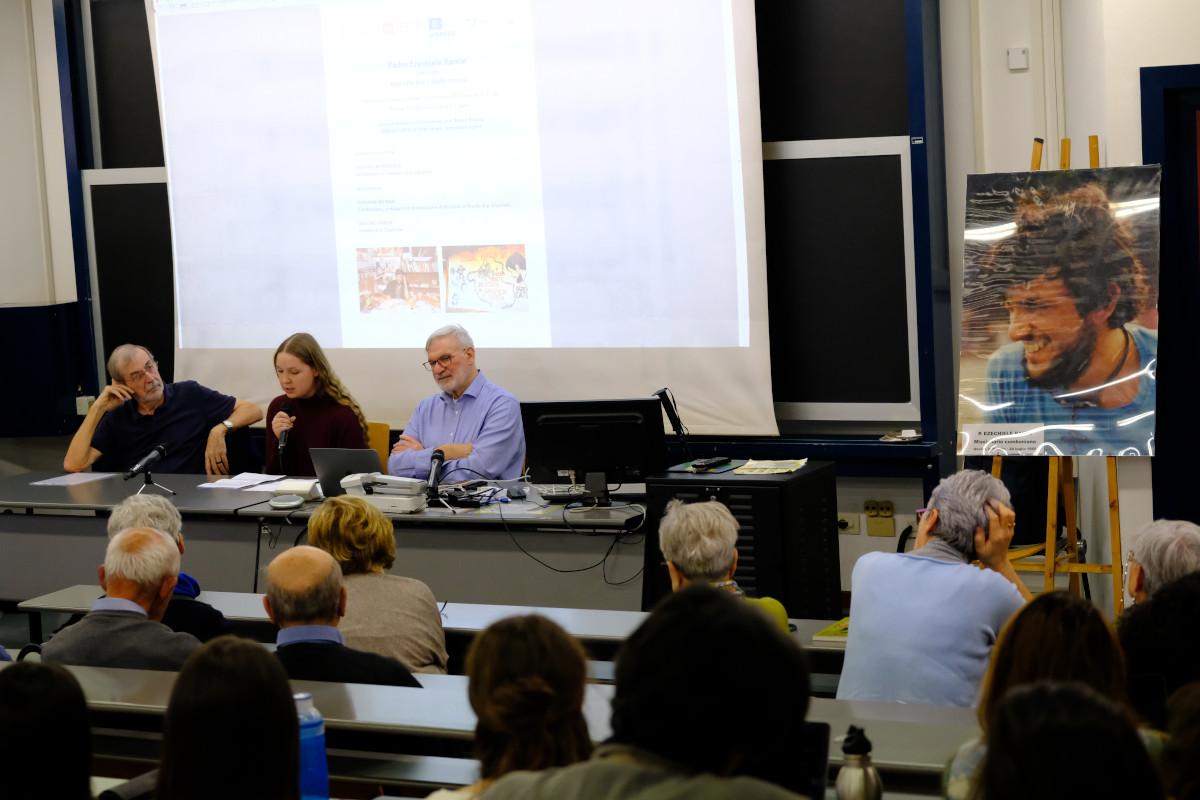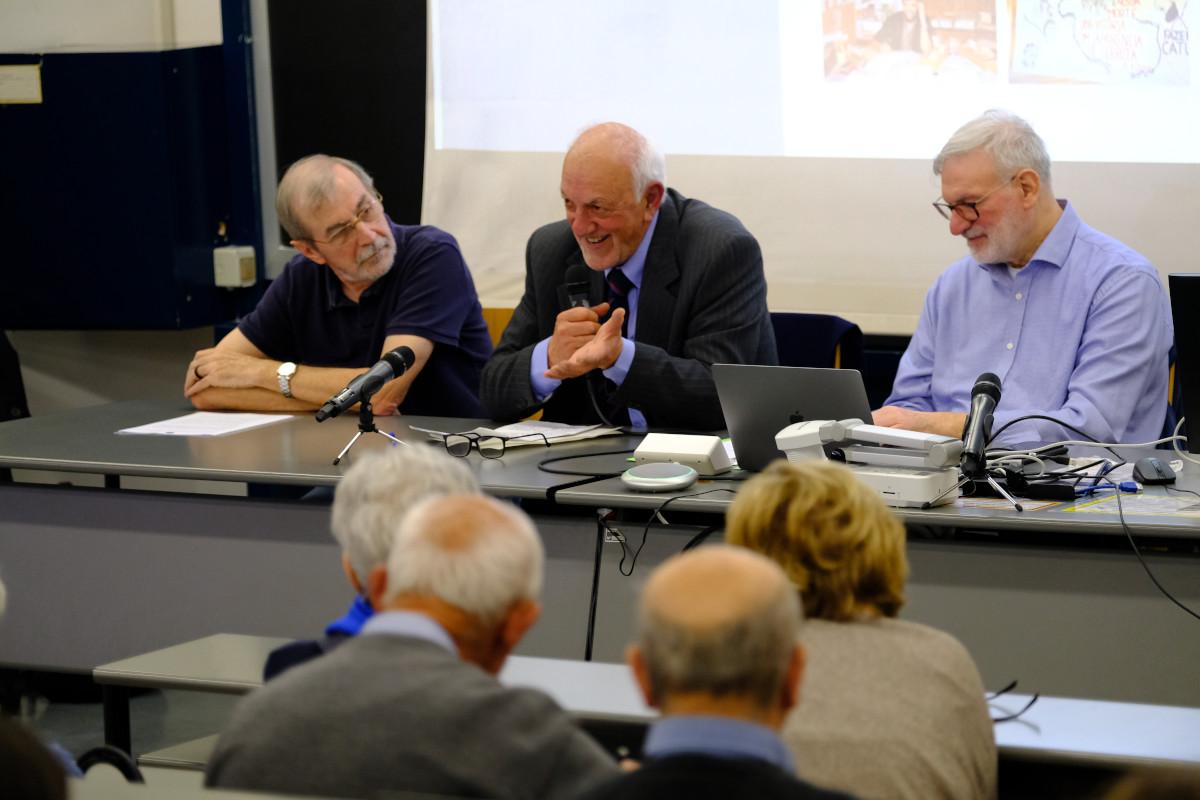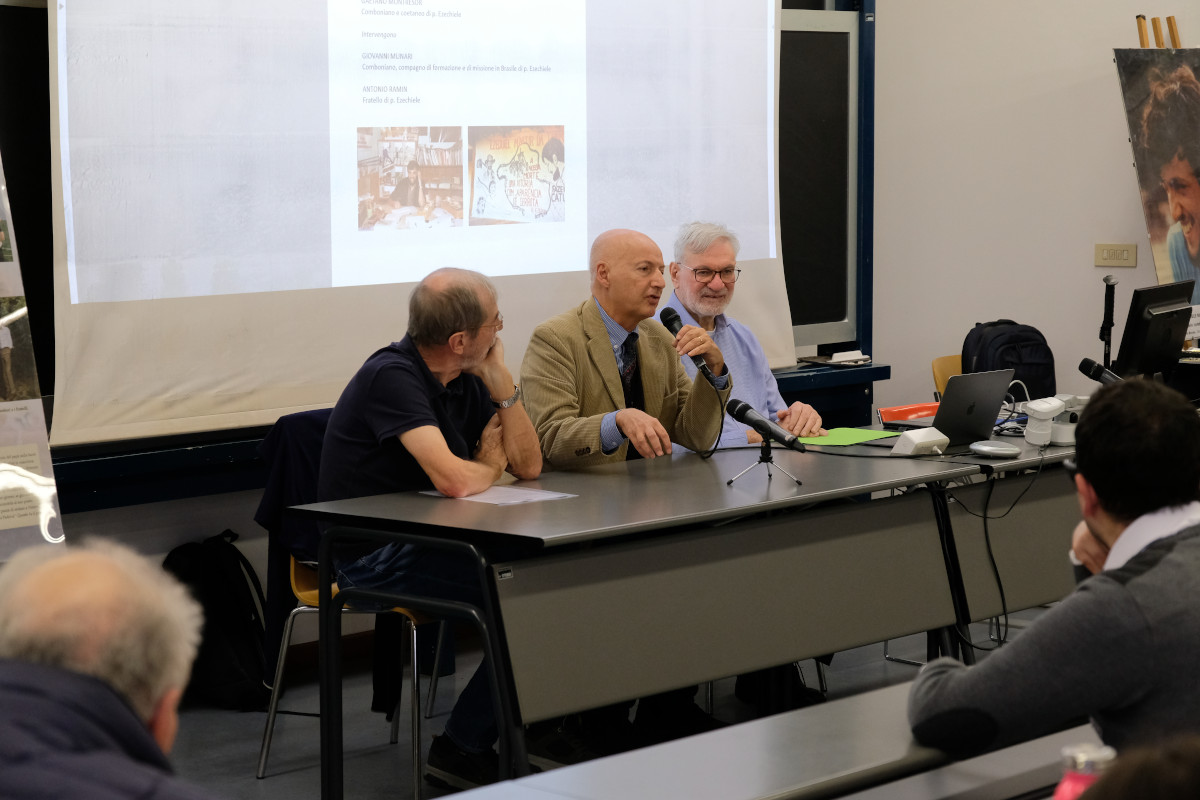Daniel Comboni
Comboni Missionaries
Institutional area
Other links
Newsletter
Tuesday, November 18, 2025
On Thursday ,13th November 2025, a conference entitled Father Ezechiele Ramin — A Life for Human Rights’ was held at the Antonio Papisca Human Rights Centre of the University of Padua. The two speakers, Father Giovanni Munari – who shared his formation and mission experience in Brazil with Father Ezechiele – and Antonio Ramin, Ezechiele’s brother, were introduced by Father Gaetano Montresor, nearly the same age as Ezekiel of Ezechiele. They spoke during the International Relations course, at the invitation of Prof. Marco Mascia. Around one hundred people, mostly young students, followed the two speakers’ rich and engaging presentations with great attention and interest. A deep emotion pervaded the entire conference.
Father Munari offered a thoroughly documented historical overview of Brazil’s sociopolitical situation over the past sixty years: the succession of governments, economic choices and their devastating social consequences for both the population and the environment, culminating in the severe social and environmental crisis of recent years.
It was in this Brazil that Father Ezechiele Ramin lived and worked for just over a year and a half, from January 1984 to July 1985. He was murdered on 24th July 1985, immediately after meeting his killers with his killers in a sincere and courageous show of solidarity with the peasants who had been unjustly denied the land that was rightfully theirs.
Antonio Ramin began his account with a striking statement: “Father Ezechiele did not die. He was killed!” Why was he killed, and by whom? Ezechiele had chosen to defend the dignity and the lives of the peasants, as their mothers, wives and children had asked of him.
This choice was the outcome of a long journey that had begun in his family, where Ezechiele had breathed civic and moral values, particularly that of justice, to which he would remain faithful until his martyrdom.
It was only at the tragic moment of his assassination that his family realised that Ezechiele no longer belonged solely to them, but also to the Church and to the world. Upon arriving in Brazil, a country of enormous proportions — the parish of Cacoal covered an area as large as the Veneto region — he embraced his role as a priest by following Christ within that context, taking on enormous challenges in the field of human rights, particularly in the defence of life and justice.
The court documents reveal that each of the men who shot him received a sum equivalent to about 50 euros.
Antonio’s concluding remark was strikingly apt: “Father Ezechiele speaks today more than he did during his lifetime.”
A young university student named Catherine read a selection of passages from Father Ezechiele’s writings chosen by his brother Fabiano.
Closing the conference was lawyer Mariano Paolin, former notary actuary in the diocesan beatification process and in the international rogatory of the Brazilian court held in Padua. After forty years of futile attempts, Mr Paolin, together with a Brazilian colleague, managed to obtain the official document concerning the land where Father Ezechiele met with the farmers and the nearby place where he was killed. The document certifies that Father Ezechiele did not trespass on any private property: the land was public.

